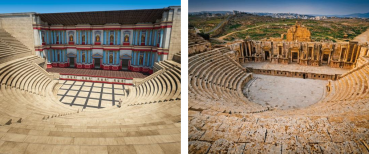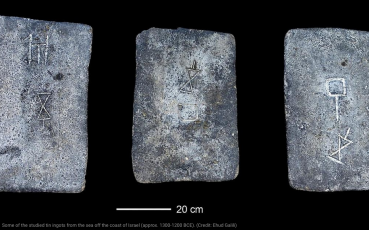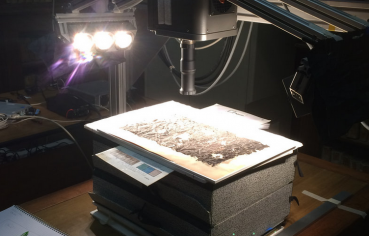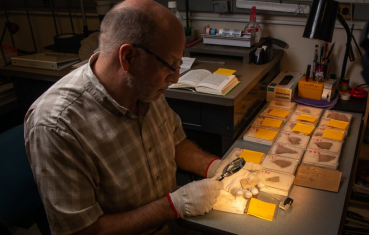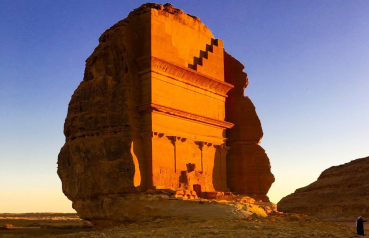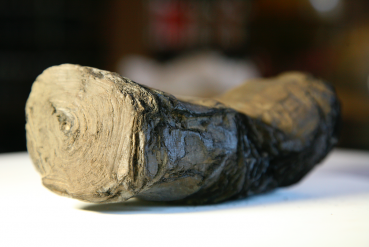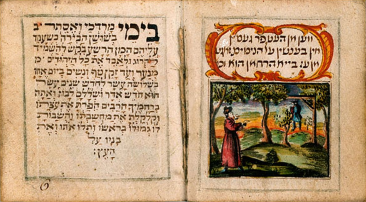Jerash, located in modern Jordan, was one of the “10 Cities”, the Decapolis, mentioned in the Gospels (see references to Decapolis here and specific mentions of Jerash [Gerasa] here). National Geographic, as always, does a fantastic job of of a visual presentation, with photos and reconstructions of the ancient city, as well as giving an overview of the history of the location. I have yet to visit Jerash, but I hope to in the near future.
Continue readingCategory Archives: History
Tin from 13th-12th century BCE locations on the Eastern Mediterranean may have originated in England
A team has reached some fascinating conclusions in their research into the sources of tin at sites 13th and 12th centalong the eastern Mediterranean coast:
Continue readingAnother article on the Infrared Imaging of the Herculaneum scrolls
NPR also has a nice summary article on the imaging of the Herculaneum scrolls and the resultant textual content discoveries from the work.
Continue readingMultispectral Imaging, 2000 Year Old Pottery, and Aramaic
Continue reading“A Columbian College of Arts and Sciences professor is using cutting-edge imaging technology to decipher the inscriptions on fragments of broken pottery excavated more than 50 years ago in Jordan. The fragments, long thought to be lost, were recently rediscovered.”
New research of Nabataean sites in Saudi Arabia
A BBC article about new archeological surveys of Nabataean sites in northern Saudi Arabia. The Nabataeans are best known today for the ruins at Petra.
Continue readingVirtually Unrolling Ancient Scrolls
Good and quick article regarding the latest use of technology to potentially read ancient manuscripts: “2,000-year-old Herculaneum Scrolls”
Continue readingPatrick Henry on Torture and the Eighth Amendment of the Constitution
When debating the Constitutional amendments that would eventually become the Bill of Rights, Patrick Henry advocated strongly for an amendment providing for protections against the use of “excessive bail and fines” and “cruel and unusual punishment.” His case was this: While our governing representatives could be allowed latitude to write laws defining crimes and enforcing punishment, they could not be trusted with the same (or any) latitude when it came to ensuring limits to punitive actions. He stated: “But when we come to punishments, no latitude ought to be left, nor dependence put on the virtue of representatives.” Continue reading
Some Thoughts on Patriotism
In the United States one of the most patriotic things we can do is examine, question, and critically challenge both our government and our social values. This is one of the core principles that made the founding of our nation unique in its time and (at our best) is a model and standard for other nations. Continue reading
Rising Star, Ruthless Rebel, and False Messiah: Bar Koseba, Bar Kokhba, Bar Koziba
Fifty-seven years ago today Yigael Yadin announced the discovery of letters written by Bar Kochba, the leader of the third Judaean rebellion against Rome (from 132-134 C.E.). These letters reveal that his real name was Shimon Bar Koseba. Tradition holds that the name Bar Kokhba was given to him by Rabbi Akiva, who believed that the rebel leader might be the Messiah. Bar Kochba means “son of a star” and alludes to a portion of Numbers 24:17as a Messianic prophecy: “There shall come a star out of Jacob, and a scepter shall rise out of Israel.” Continue reading
Purim
Purim is a holiday celebrated by Jewish people for centuries to commemorate the defeat of Haman, who had plotted to have all the Jews massacred in the kingdom of the Xerxes, king of Persia. This sinister plot is revealed and ultimately stopped due to the boldness of Esther and her uncle Mordecai. You can read all about this in the Book of Esther in the Hebrew Bible. Continue reading
Pearl Harbor, December 7, 1941
On a Sunday morning 75 years ago today, Pearl Harbor was attacked. Continue reading
